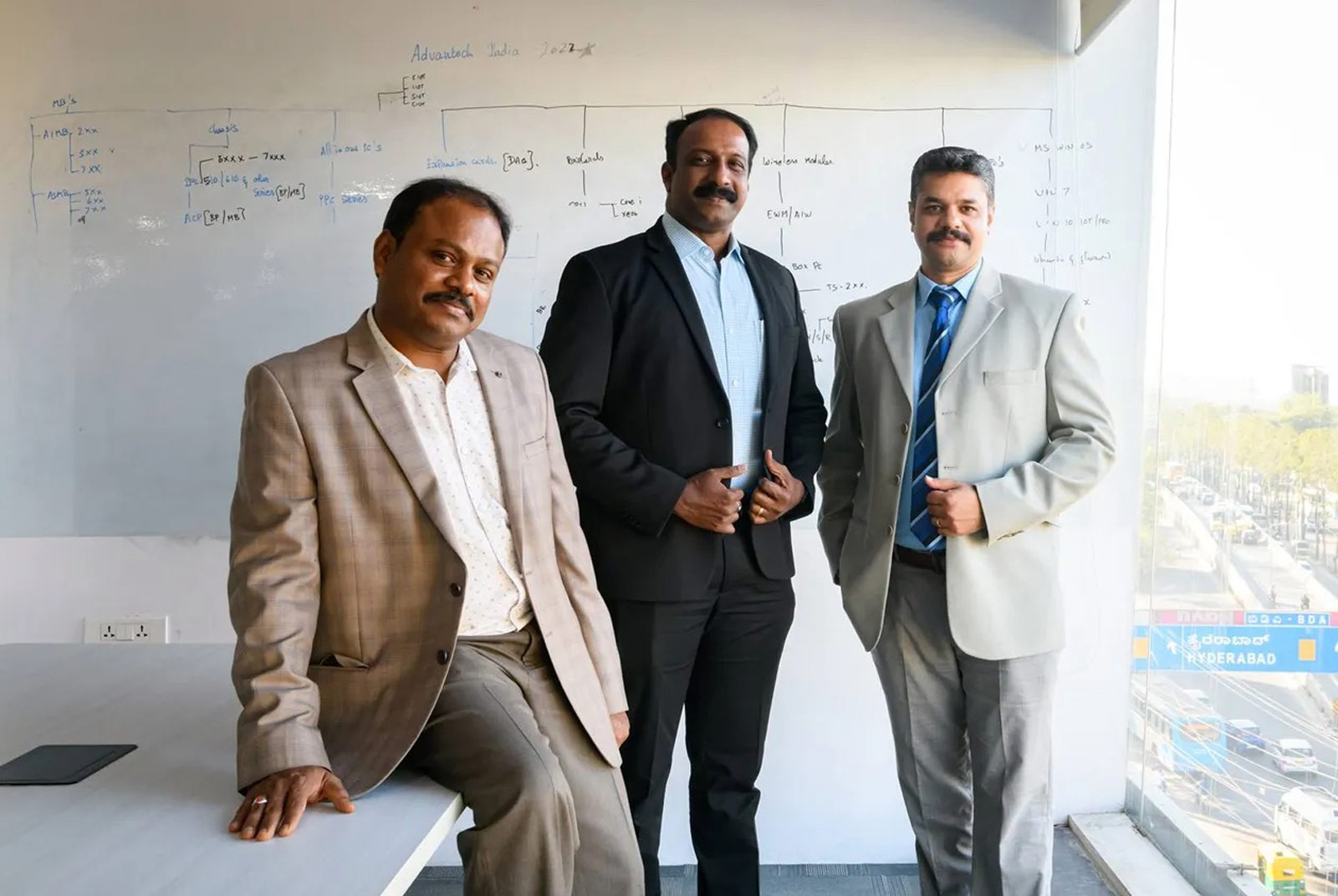Advantech bags 70% of India's metro orders with the help of local talent

Source:Pei-Yin Hsieh
As the Indian government starts investing heavily in infrastructure, Taiwan’s Advantech—which has worked in India for two decades, and saw its local branch increase its revenue by 60% in 2022—was able to lock down 70% of the orders for industrial equipment used in India’s expanding metro systems. The key? Advantech’s 100-strong all-Indian local team.
Views
Advantech bags 70% of India's metro orders with the help of local talent
By Meng-hsuan Yang, Elaine HuangFrom CommonWealth Magazine (vol. 767 )
Taiwanese companies have an interesting love-fear relationship with India.
Newcomers arrive in the market full of hope. But a majority of them leave with their tail between their legs. Continental Engineering Corporation (CEC) garnered a lot of attention back when it secured orders for parts of the metro systems in Delhi and Bangalore. But in 2018, Nita Ing (殷琪), Chairwoman of both CEC and its parent company Continental Holdings, announced that the company would no longer compete for tenders in India.
During an interview with CommonWealth Magazine, Ing cited payment issues, corruption, low administrative efficiency, and difficulty recruiting local talent as the reasons why she sounded the retreat from India.
On the flip side, industrial PC leader Advantech Co., Ltd., which has had a presence in India for 20 years, is experiencing exponential growth. Advantech India’s revenue in 2022 hit US$21 million—an annual increase of 60%. This surpassed all of Advantech’s other regional branches.
Rakesh Sharma, Senior Manager of Finance and Accounting at Advantech India, attributes the success to the Indian government’s robust investment in smart cities and public infrastructure. “Ever since Prime Minister Modi took office, and especially during his second term, we’ve been seeing a lot of new investments and technological development.”
He says Advantech’s Taipei headquarters has set the revenue target to US$50 million by 2025.
The offices of Advantech India are located in an inconspicuous office building more than an hour’s drive from the city center of Bangalore, India’s “Silicon Valley”.
The space is filled with semi-finished mainframes delivered from Taiwan and China. After they are customized and assembled, the products are shipped out from the warehouse on the first floor to cities across India. This is in accordance with PM Modi’s “Make in India” policy.

“We’re running out of office space and inventory space,” says Sharma, who joined Advantech in 2016. The plan is to look for a bigger and newer building during the first half of 2023.
Finding ecosystem partners to fight the good fight
Point of sale (POS) systems used by India’s biggest retailer Reliance and fast food chain KFC are all made by Advantech. More importantly, Advantech has secured a spot on the Modi administration’s public works locomotive.
To use transportation as an example, there are a total of 15 metro systems in India. Each and every one of them is expanding. Up to 70% of their new equipment, from turnstile sensors to video walls to traffic signals, rely on Advantech computers.
After so many years in the Indian market, Advantech has learned the rules of survival.
The first rule is to work with other big foreign companies on infrastructure projects to mitigate the risk of not getting paid.
Mark Yang (楊宏理), head of Advantech’s emerging markets marketing team, uses Japan’s Hitachi and NEC as an example. The two companies recently secured orders from a number of Indian metro projects. Due to cost considerations, they chose Advantech’s industrial PCs over Japanese brands.
Rely on local management
The second rule is to make good use of local talent. Besides Sharma, two other senior managers at Advantech India’s headquarters who took interviews were Director B.N. Vijaya Kumar, an Advantech veteran of 17 years, and sales head Praveen B.
According to Yang, Advantech’s start in the Indian market was not without its growing pains. None of the managers flown in from China and Taiwan fared very well. In the end, it all came down to the local team.
'There are a total of a hundred employees across three offices in India. They are all Indian; there’s not a single Taiwanese person,' Yang says proudly.
Yang explains that the caste system is deeply ingrained in Indian culture. Although Advantech hires its workers based on performance, there are unspoken rules when it comes to interaction between Indian employees of different castes. Indian managers are better able to deal with the subtleties of the situation.
Small-quantity, high-variety customized production lines
The third rule lies in the assembly line and repair and service center at Advantech India’s headquarters.
Technicians in blue uniforms open up computers and make careful adjustments to components on the motherboards with tweezers. There is no large production line in sight. Everything is done on a spartan assembly line.

This is because Advantech adopted the small-quantity, high-variety approach to customized manufacturing. Kumar explains that the temperature and humidity differences between Indian regions can be substantial. When designing embedded systems for smart city solutions, Advantech needs to make adjustments to its products based on customer requests.
The simple, refined method meant that only seven workers are needed on the assembly line. Together, they churn out 3,000 to 6,000 machines every month. This is enough to not only cover the Indian market, but also those of Sri Lanka, Dubai, and Bhutan.
As manufacturing companies crowd into India, Advantech is not only in a prime location, it is also exploring new opportunities and expanding its workforce by 10%. It stands to benefit mightily from India’s soaring infrastructure projects.
Have you read?
- Taiwan, Apple making India a new iPhone hub
- How can the 2023 Indian budget boost opportunities for Taiwan industries?
- Shift, Shake or Shock? Lessons for Taiwan investment in India
Translated by Jack Chou
Edited by TC Lin
Uploaded by Ian Huang






